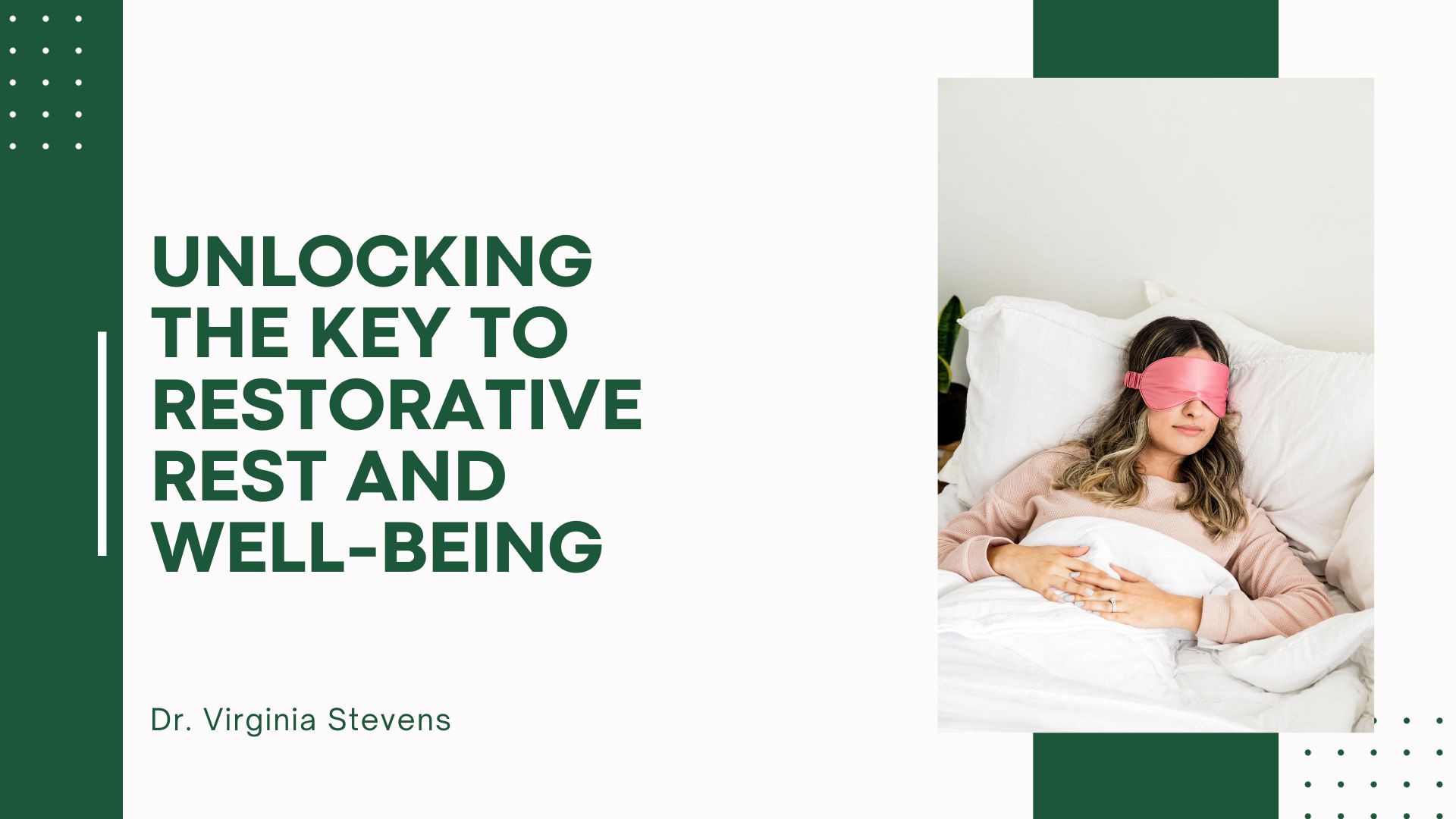In our fast-paced and demanding world, restorative rest is essential for maintaining good health and overall well-being. Rest allows our bodies and minds to recharge, repair, and rejuvenate.
Understanding Restorative Rest
Restorative rest refers to the intentional practice of giving our bodies and minds the time and space they need to recover and regenerate. It goes beyond simply sleeping or taking breaks; it encompasses various types of rest that address different aspects of our well-being.
Types of Rest
- Physical Rest: This rest allows our bodies to recover from physical exertion. It includes getting enough sleep, taking regular breaks during physical activities, and engaging in activities that promote relaxation, such as stretching or massage.
- Mental Rest: Mental rest involves giving our minds a break from constant stimulation and mental challenges. It includes activities like meditation, deep breathing exercises, mindfulness, or engaging in hobbies that help divert attention away from work or daily stressors.
- Emotional Rest: Emotional rest focuses on nurturing our emotional well-being. It involves acknowledging and addressing our emotions, setting healthy boundaries, seeking support from loved ones or therapists, and engaging in activities that bring joy and fulfillment.
- Social Rest: Social rest involves taking time away from social interactions and obligations to recharge and regain energy. It can include solo activities, such as spending time alone in nature, reading, or pursuing personal interests.
- Sensory Rest: Sensory rest refers to giving our senses a break from excessive stimulation. It can involve reducing exposure to bright lights, loud noises, and screens, or spending time in calming environments to promote relaxation and restoration.
Tips for Practicing Restorative Rest
- Prioritize Sleep: Aim for 7-9 hours of quality sleep each night. Create a sleep-friendly environment, establish a bedtime routine, and ensure your sleep schedule aligns with your natural circadian rhythm.
- Schedule Regular Breaks: Incorporate short breaks throughout the day to rest your body and mind. Step away from your work or tasks, engage in a calming activity, or practice deep breathing and relaxation techniques.
- Establish Boundaries: Set boundaries to protect your time and energy. Learn to say no to commitments or activities that drain you, and prioritize self-care and rest.
- Engage in Relaxation Techniques: Explore practices such as meditation, yoga, or deep breathing exercises to promote mental and emotional relaxation. Find activities that help you unwind and restore balance.
- Disconnect from Technology: Take regular breaks from screens and digital devices to reduce sensory overload. Engage in activities that allow your mind to rest and recharge without constant stimulation.
Embrace restorative rest and experience its transformative benefits to your overall health and well-being.

